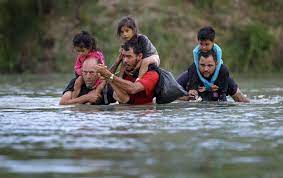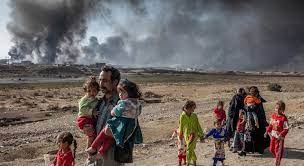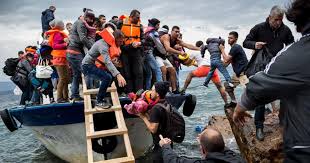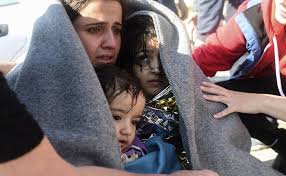A message from Pope Francis:



 The migratory flows of our times are the expression of a complex and varied phenomenon that, to be properly understood, requires a careful analysis of every aspect of its different stages, from departure to arrival, including the possibility of return. As a contribution to this effort, I have chosen to devote the Message for the 109th World Day of Migrants and Refugees to the freedom that should always mark the decision to leave one’s native land.
The migratory flows of our times are the expression of a complex and varied phenomenon that, to be properly understood, requires a careful analysis of every aspect of its different stages, from departure to arrival, including the possibility of return. As a contribution to this effort, I have chosen to devote the Message for the 109th World Day of Migrants and Refugees to the freedom that should always mark the decision to leave one’s native land.
“Free to leave, free to stay” was the title of an initiative of solidarity promoted several years ago by the Italian Episcopal Conference as a concrete response to the challenges posed by contemporary migration movements. From attentive listening to the Particular Churches, I have come to see that ensuring that that freedom is a widely shared pastoral concern.
“An angel of the Lord appeared to Joseph in a dream and said: ‘Get up, take the child and his mother, and flee to Egypt, and remain there until I tell you; for Herod is about to search for the child, to destroy him” (Mt 2:13). The flight of the Holy Family into Egypt was not the result of a free decision, nor were many of the migrations that marked the history of the people of Israel. The decision to migrate should always be free, yet in many cases, even in our day, it is not. Conflicts, natural disasters, or more simply the impossibility of living a dignified and prosperous life in one’s native land is forcing millions of persons to leave. Already in 2003, Saint John Paul II stated that “as regards migrants and refugees, building conditions of peace means in practice being seriously committed to safeguarding first of all the right not to emigrate, that is, the right to live in peace and dignity in one’s own country” (Message for the 90th World Day of Migrants and Refugees, 3).
“For I was hungry and you gave me food, I was thirsty and you gave me something to drink, I was a stranger and you welcomed me, I was naked and you gave me clothing, I was sick and you took care of me, I was in prison and you visited me” (Mt 25:35-36). These words are a constant admonition to see in the migrant not simply a brother or sister in difficulty, but Christ himself, who knocks at our door. Consequently, even as we work to ensure that in every case migration is the fruit of a free decision, we are called to show maximum respect for the dignity of each migrant; this entails accompanying and managing waves of migration as best we can, constructing bridges and not walls, expanding channels for a safe and regular migration. In whatever place we decide to build our future, in the country of our birth or elsewhere, the important thing is that there always be a community ready to welcome, protect, promote and integrate everyone, without distinctions and without excluding anyone.
The synodal path that we have undertaken as a Church leads us to see in those who are most vulnerable – among whom are many migrants and refugees – special companions on our way, to be loved and cared for as brothers and sisters. Only by walking together will we be able to go far and reach the common goal of our journey.
To read the entirety of Pope Francis’ message, please click here
For further information, please click here
